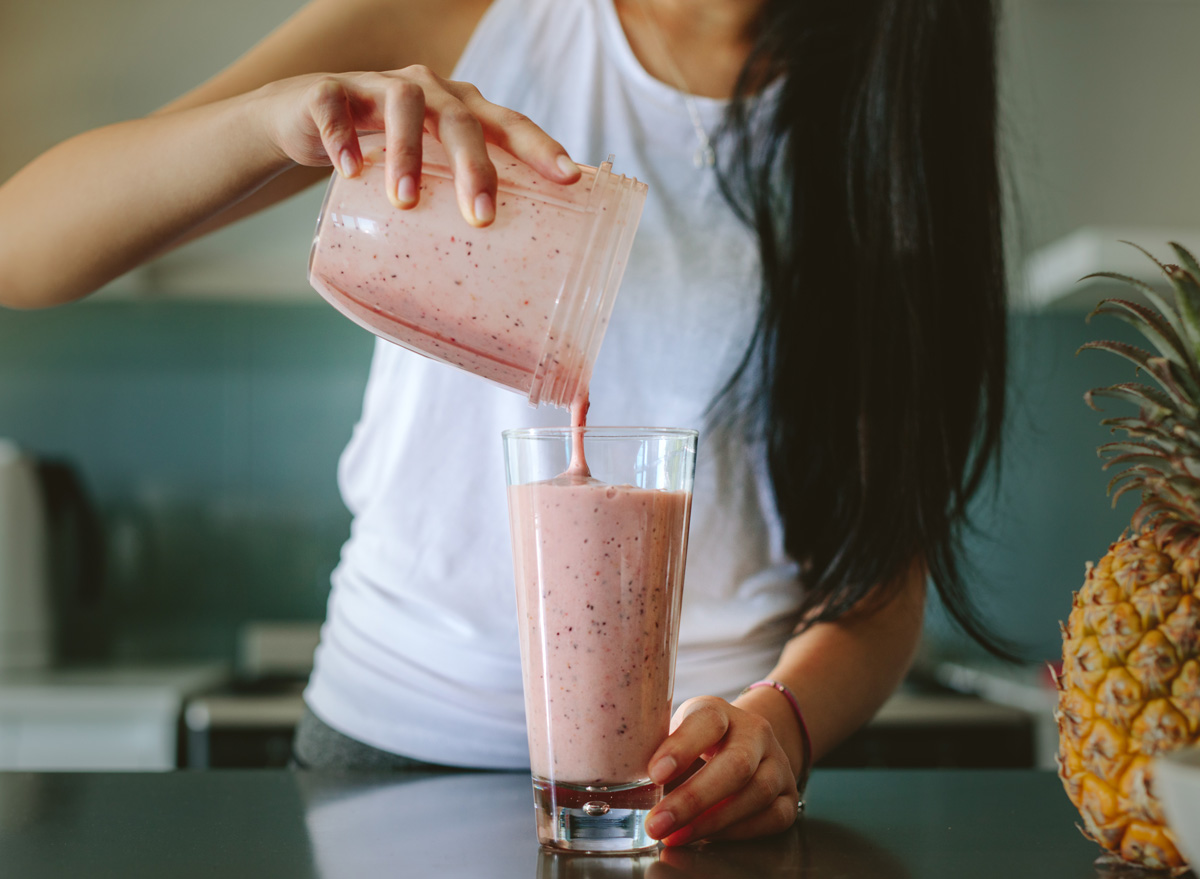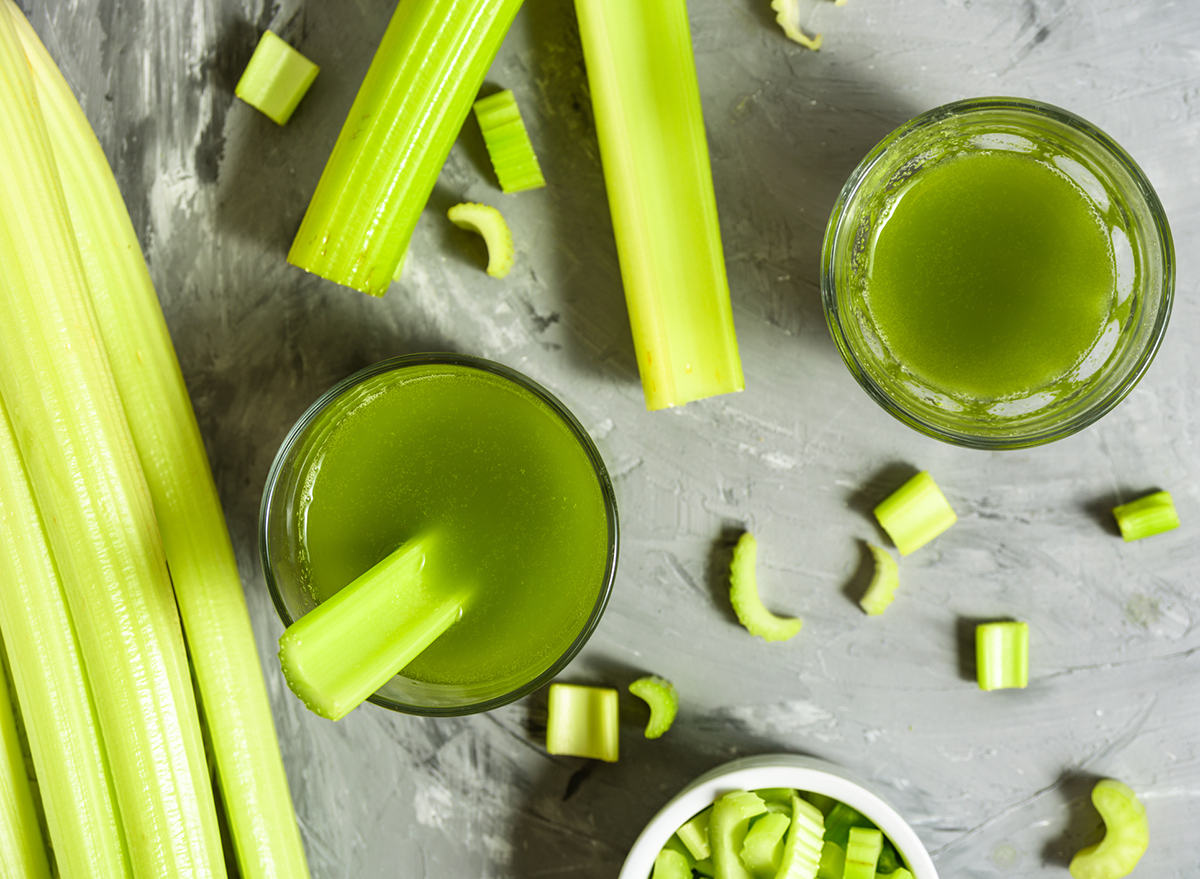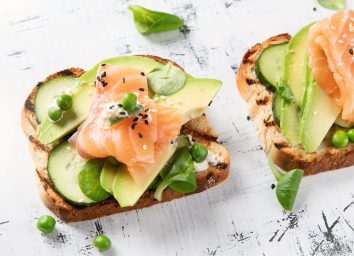These 10 Things Will Help You Lose Weight, Doctor Says

Crazy restrictive diet plans and detox cleanses never really work, do they? While the idea of rapid weight loss sounds tempting, there's no research to show that people who participate in these restrictive diets experience weight loss long term—most people just gain the weight right back. There's no magic pill, no shortcuts. True, long-term weight loss comes from changes in one's lifestyle. Not just in the realm of eating and working out (although those are both important), but also changes in one's mindset. How you think and feel about your health is the most powerful tool to help you lose weight.
So what does that look like? How can we switch our mindset and actually feel motivated and excited to be healthy in our bodies? We spoke with Dr. Amy Lee, Head of Nutrition for Nucific, about how to get in the right mindset when setting health goals for yourself. These powerful tips can help you set those long-term goals, break through negative barriers, and feel motivated about taking control of your own health.
Here are 10 things that will help you lose weight, according to Dr. Lee. And for more healthy tips, make sure to check out our list of 21 Best Healthy Cooking Hacks of All Time.
Write out your reason why.

Be honest with yourself: Why do you want to lose weight? Is it because you're worried about developing diseases like diabetes? Do you want to be on fewer medications? Do you want more energy throughout the day? Do you simply want to feel good in your own skin?
Whatever the reason is, Dr. Lee says it's important to have a reason why.
"Sit down and write out the top reasons why you want to lose weight," she says. "The power of documentation also plays a role in holding yourself accountable for your actions. Make a conscious choice that you want to make changes and all the reasons why. Because months from now, this serves as a tool to remind you of what you have set out to do."
Speaking of mindset shifts, here are 6 Mindset Changes That Help You Lose Weight Fast, According to a Celeb Trainer.
Figure out what your barriers are.

If your reasons to lose weight are clear, then there's probably something else in the way. What are those barriers in your life that are causing an issue for you? What do you find to be the hardest part when it comes to getting healthier?
"Ask yourself why you think you have an issue with weight," says Dr. Lee. "[Is it] the eating? The sedentary lifestyle? The stress? The distractions in life?"
Addressing the barriers can actually make the process easier for you. Because if you know what the problem is in the beginning, then it can be easier to tackle, instead of letting it completely overwhelm you later.
If you're looking for more healthy eating tips, sign up for our newsletter.
Be realistic.

Now that you know what those barriers are, Dr. Lee says it's important to be realistic about them. If you know that working out is something you don't enjoy, be realistic. Find ways to move your body that you actually enjoy—like walking or riding a bike—instead of feeling like you need to "do what everyone else is doing." Hate running? Guess what, you don't have to do it!
What about eating healthier? Maybe it's a matter of setting a few new healthy eating habits at first, then adding more in as time goes on. Don't feel like you have to go from zero to 60 in just one day. Start making small, realistic changes in your life. That could be as simple as portioning out your food, making sure you're adding a fruit or vegetable to every meal, or even swapping out a few of those refined, white carbs with whole-grain—like white pasta to wheat pasta.
An easy way to be realistic with yourself is to set smaller, attainable goals and work your way up. Saying you want to lose 10 pounds may be the ultimate goal, but why not set some markers for success along the way? Instead, what if you set a goal to move your body for 30 minutes every day this week? Or a goal to eat something green with every dinner?
Even research shows that focusing on small goals can help increase weight loss!
Focus on the magical three.

"If you are unwilling to address the three things in life that contribute to abnormal weight gain—nutrition, the movement, and the stress management—then you will never succeed in losing weight, let alone maintaining it for life," says Dr. Lee.
Eating nutritious meals, moving your body, and maintaining stress really do all go hand-in-hand. Research shows that moving your body can help with your overall stress throughout the day, and it can even help motivate you to eat healthier meals. There's even research to show that nutritious meals can help reduce your cortisol levels, which is your stress hormone.
However, as Dr. Lee mentions, if you're not focusing on these magical three, losing weight won't be possible. That's why it's important to focus on your "why" and to be realistic as you make these changes in your life. Weight loss will soon follow.
For stress, check out our list of 32 Foods That Turn Off the Stress Hormone.
Avoid quick fixes and focus on the long term.

There are a lot of programs out there that promise those crazy results, but do they actually work? Dr. Lee says to avoid those quick fixes if you're really looking for long-term success.
"Anything that has a quick, easy, or miracle weight loss claim or promise is what you want to avoid," says Dr. Lee. "A quick fix diet will only help you lose weight for the time being. And the moment you go back to your old ways, you will end up regaining plus more."
So why bother? If the diet is making you go through crazy restrictions that you know won't work long-term, what's the point? Instead, focus on setting healthier habits for yourself that will actually be successful for you for the long-term.
Allow yourself some indulgence.

Dr. Lee agrees that a little indulgence "in moderation" is absolutely okay, and can be helpful for sustaining your weight loss long term. She says it's all about understanding portions and not going overboard during those times you choose to treat yourself. An easy example of this is choosing to scoop out a serving of ice cream to enjoy, instead of finishing half the pint in one sitting. Or try making one of our 73+ Best Healthy Dessert Recipes.
Don't attach emotions to food—like saying healthy foods are "boring."

"Do not relate healthy foods as boring as an emotion because the moment that you do, you will set yourself up for sabotage on days when you are down or stressed," says Dr. Lee.
By setting emotions for your food, you're creating barriers for yourself. If you deem certain foods "good" or "bad" or "boring" or "fun," you'll experience mental barriers later down the line. But if you break those barriers and simply let all food be food, you'll find yourself moving into what is known as intuitive eating—a practice where you let your body intuitively eat what it craves. It also gives yourself room to actually crave and enjoy those "healthy" foods that you may have deemed boring before, instead of despising them and only enjoying those "fun" foods.
Here's A Beginner's Guide to Intuitive Eating.
Get an accountability partner.

"Find a supportive buddy who also has similar goals or believes in your goals with you," says Dr. Lee. "It could be a sibling, a friend, a colleague or your significant other. My support buddy is my husband who enjoys getting up early to get his work out in and he knows that in order for me to sign on to his morning work-out regimen, he took it upon himself to make me a cup of fresh black coffee for me as an incentive. And it works!"
Treat yourself to non-food rewards.

Do you love treating yourself to something sweet every time you reach a health goal? While the positive validation is exciting, Dr. Lee says that reward doesn't have to always be food related.
"In planning to reach that goal weight, allow yourself to have a reward," says Dr. Lee. "That reward does not have to be food, by the way. Treat yourself to a spa day. Splurge a little bit at the mall. Share your success with someone supportive. This great news is inviting, and the positive feedback serves as a reinforcement for you to maintain that goal weight. Positive validation is a powerful motivator."
Practice mindfulness.

Make sure to continue to reflect on why you started all of this in the first place. Remember that you set goals for yourself and it's okay to want to treat yourself and your body in a healthy way, and Dr. Lee says a daily practice of mindfulness is a great way to remind yourself of that truth.
"Have something in place daily that will remind you of your lifelong goals," says Dr. Lee. "Write it down somewhere in a journal and revisit that page often. As humans, we get easily distracted with the everyday life happenings; but at times, try to sit down and revisit your own thoughts."








